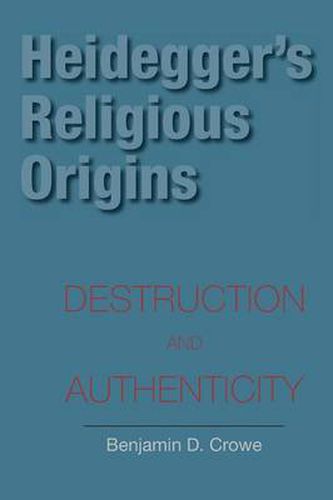Readings Newsletter
Become a Readings Member to make your shopping experience even easier.
Sign in or sign up for free!
You’re not far away from qualifying for FREE standard shipping within Australia
You’ve qualified for FREE standard shipping within Australia
The cart is loading…






In Heidegger’s Religious Origins, Benjamin D. Crowe explores the meaning and relevance of Heidegger’s early theological development, especially his intellectual ties with Martin Luther. Devoting particular attention to Heidegger’s philosophy of religion in the turbulent aftermath of World War I, Crowe shows Heidegger tightening his focus and searching his philosophical practice for ideas on how one cultivates an authentic life beyond the destruction of Europe. This penetrating work reveals Heidegger wrestling and coming to grips with his religious upbringing, his theological education, and his religious convictions. While developing Heidegger’s notion of destruction up to the publication of Being and Time, Crowe advances a new way to think about the relationship between destruction and authenticity that confirms the continuing importance of Heidegger’s early theological training.
$9.00 standard shipping within Australia
FREE standard shipping within Australia for orders over $100.00
Express & International shipping calculated at checkout
In Heidegger’s Religious Origins, Benjamin D. Crowe explores the meaning and relevance of Heidegger’s early theological development, especially his intellectual ties with Martin Luther. Devoting particular attention to Heidegger’s philosophy of religion in the turbulent aftermath of World War I, Crowe shows Heidegger tightening his focus and searching his philosophical practice for ideas on how one cultivates an authentic life beyond the destruction of Europe. This penetrating work reveals Heidegger wrestling and coming to grips with his religious upbringing, his theological education, and his religious convictions. While developing Heidegger’s notion of destruction up to the publication of Being and Time, Crowe advances a new way to think about the relationship between destruction and authenticity that confirms the continuing importance of Heidegger’s early theological training.